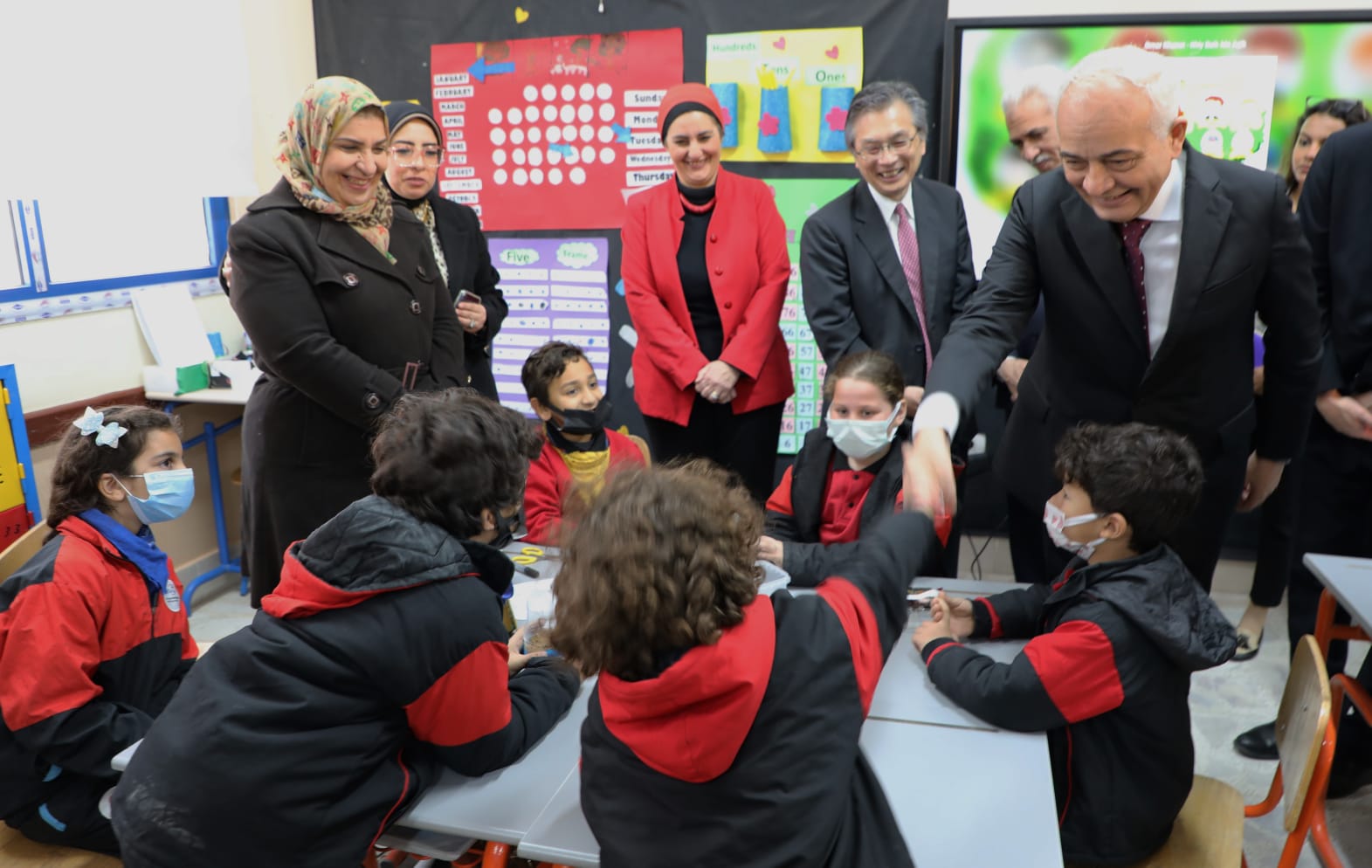The Minister of Education and the Japanese Ambassador inspect the Egyptian-Japanese School in Zahraa, Nasr City

Dr. Reda Hegazy, Minister of Education and Technical Education, Ambassador Oka Hiroshi, the Japanese Ambassador to Egypt, and his accompanying delegation inspected the progress of the educational process inside the Egyptian-Japanese School in Zahraa Madinat Nasr, in the presence of representatives of the Japanese International Cooperation Agency in Egypt (JICA).
During the tour, the minister confirmed that the political leadership pays close attention to Egyptian-Japanese schools, and the ministry is working to implement the presidential directives to expand the establishment of this type of school, which has so far reached 51 schools in 26 governorates, with a total of about 12,000 students and 2,000 teachers.
The minister added that the experience of the Egyptian-Japanese schools bears three main advantages. It is that the essence of Japanese education lies in the integrated personality of the child, which is also consistent with the goal of the new education system, as it is concerned with developing students’ academic abilities and developing morals in order to raise generations that adhere to rules and laws, and respect the feelings of others. The group learning formula also develops communication skills with others.
In turn, Ambassador Oka Hiroshi, Ambassador of Japan to Egypt, welcomed the support of joint cooperation with Egypt, the transfer of Japanese experiences in the field of education and the strengthening of the strong partnership between the two countries, stressing Japan's pride in the experience of Egyptian-Japanese schools and working to increase their numbers in the future, and he held a friendly meeting with parents and got to know each other. On the differences that occurred in the behavior and personality of the students.
The minister, the ambassador, and his accompanying delegation inspected the school's classrooms, and the minister saw an implementation of the tokatsu activities that the students received during the first semester, including the cleaning activity for KG2 students.
The minister also inspected the school's children's products exhibition, which includes students' drawings and projects. The students explained one of the projects related to the environment, and the minister discussed with them the steps to make this project.
The minister also witnessed the learning session by playing in the sand basin, which is one of the most important activities of tokatsu. The students also presented the sports activity, and the integration students participated in these activities.
During his tour inside the school, the minister met with the Japanese supervisors, where Aoyagi-sensei introduced the Egyptian-Japanese schools in Egypt and presented their activities in Egyptian schools and the transfer of their experiences, and their role, which is directly based on supporting the school, the administration, and the teachers, through their participation in the meetings of the school administration, Classes, research sessions, and follow-up of tokatsu activities that are applied in schools in Japan and Egyptian-Japanese schools, as well as a cultural exchange activity between Egyptian-Japanese schools and Japanese schools in Japan, to open horizons for Egyptian students with their peers in Japan. Moshimo Sensei also presented a project To promote students with learning difficulties, and to explore ways of integrating them and learning within a single environment with the thought and philosophy of Japanese education in which all teachers, parents and school administration participate.
The minister was also keen to speak with some parents of students, and listened to their opinions and observations, as they praised the educational process and the activities that students learn and their impact on their personality, commitment and creative abilities, and one of the parents of integration students praised the role of the school in how to deal with these students, as the minister emphasized The Ministry's role in providing all available means and capabilities that support integration students in all Egyptian schools, and enabling them to take their role in participating in all activities and promoting their talents and nurturing them.
